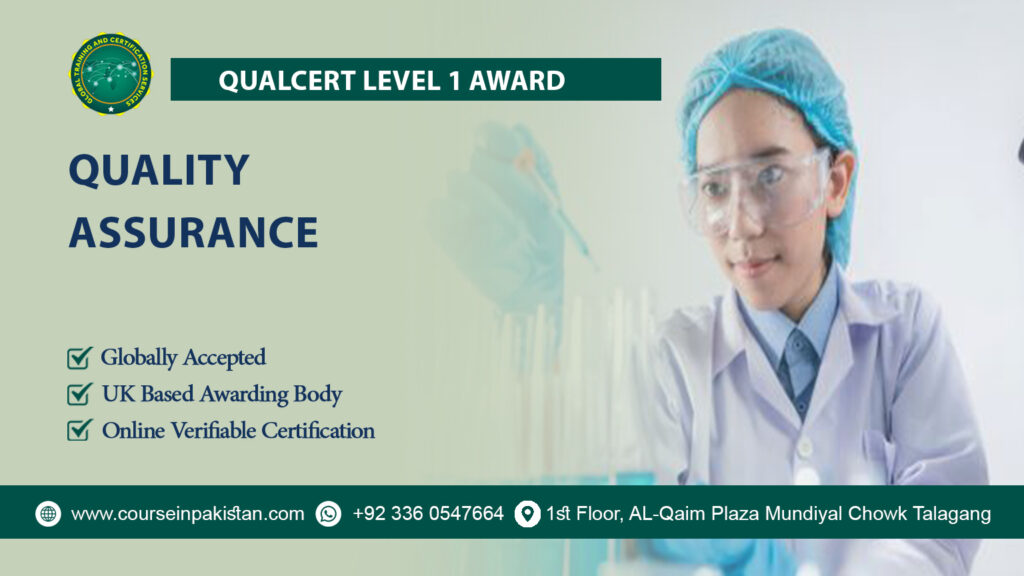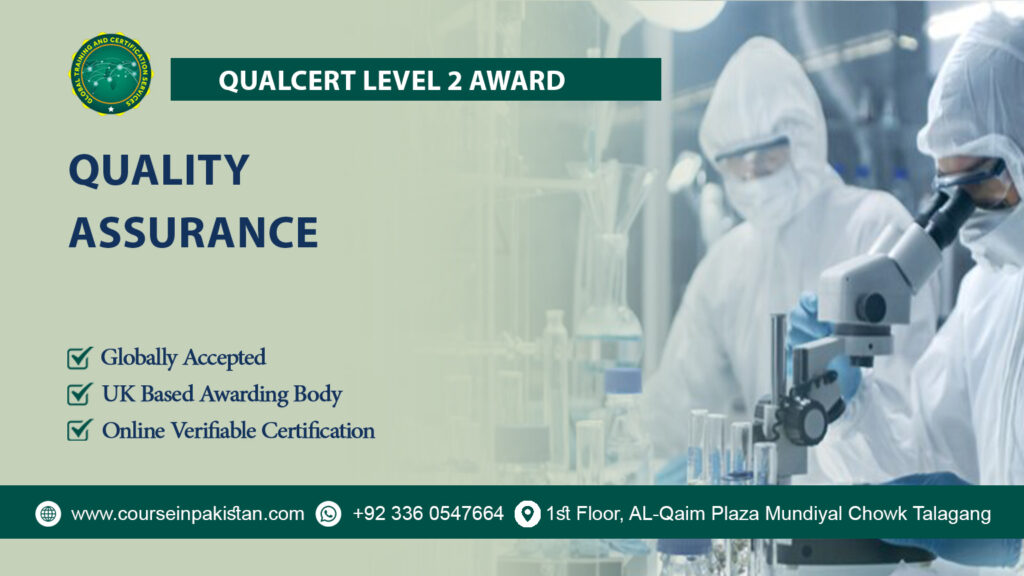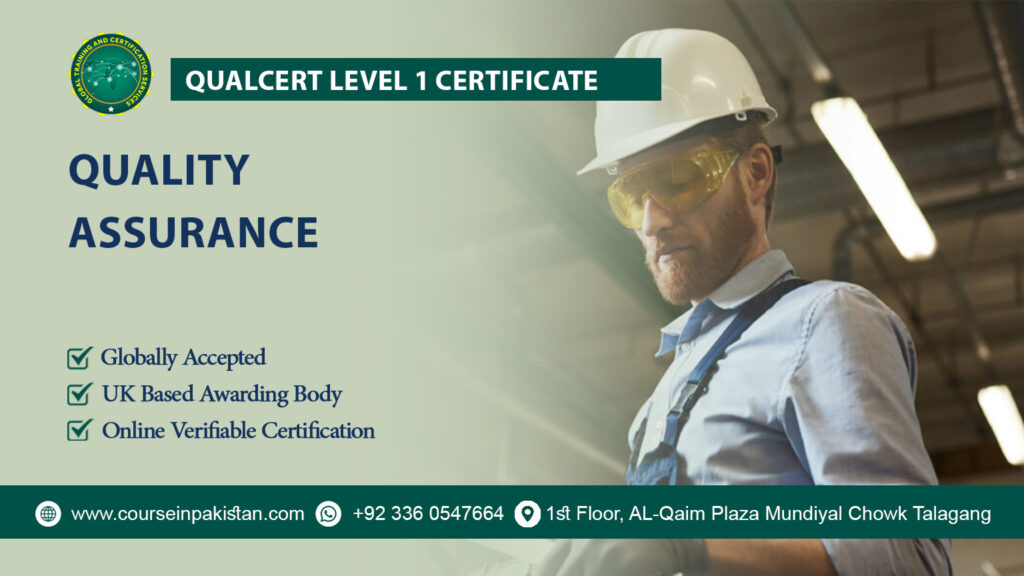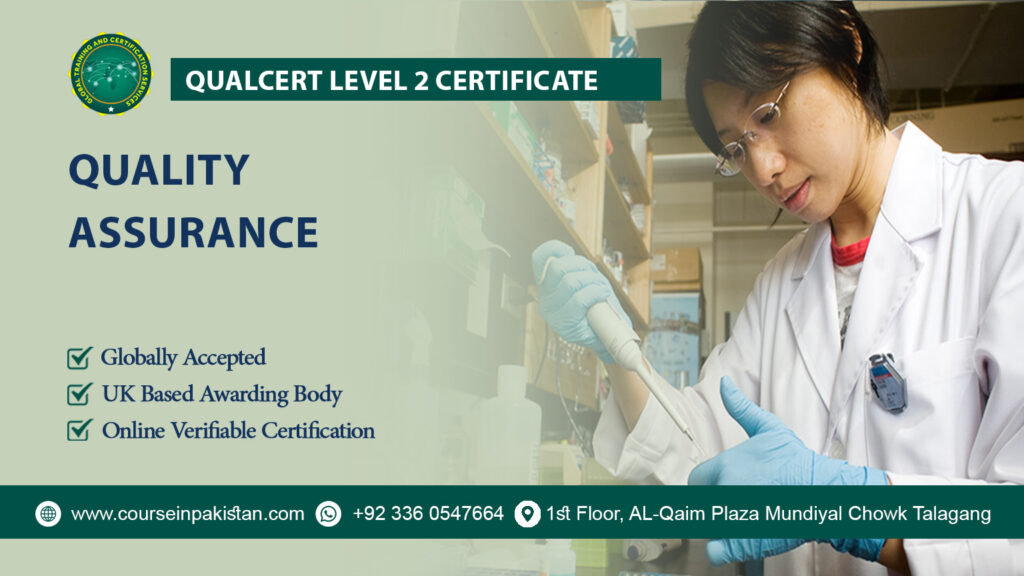Quality Control / Quality Assurance QC QA Course in Chiniot
In today’s competitive business landscape, maintaining exceptional quality in products and services is a critical factor for organizational success. Whether in manufacturing, construction, pharmaceuticals, or IT, companies rely heavily on effective Quality Control (QC) and Quality Assurance (QA) processes to stay ahead. For individuals in Chiniot, a city growing in industrial and commercial significance, pursuing a QC/QA course can open doors to valuable career opportunities across multiple sectors.
Understanding the Role of QC and QA
Quality Control (QC) involves the identification of defects in products or services before they reach the end user. It includes activities such as inspections, testing, and quality checks that ensure the final output meets defined standards.
Quality Assurance (QA) takes a more proactive approach. Rather than focusing solely on the end product, QA is integrated throughout the production or service delivery process. It emphasizes process optimization, standardized procedures, and error prevention.
Key Differences Between QC and QA
| Aspect | Quality Control (QC) | Quality Assurance (QA) |
|---|---|---|
| Definition | Detects defects in final products or services | Prevents defects through improved processes |
| Focus | Product-oriented | Process-oriented |
| Timing | After production is completed | During and before production |
| Approach | Reactive | Proactive |
| Key Activities | Inspection, testing, defect correction | Documentation, audits, process standardization |
| Responsibility | QC team, inspectors, technicians | Managers, process designers, QA auditors |
Importance of QC/QA in Technical Industries
In sectors like Civil, Electrical, and Mechanical Engineering, the importance of QC and QA cannot be overstated.
Ensuring Safety and Compliance
- Civil Engineering: Guarantees buildings, bridges, and infrastructure adhere to structural standards.
- Electrical Engineering: Prevents hazards like fires and system failures through quality inspections.
- Mechanical Engineering: Assures machinery durability and operational safety.
Improving Product and Project Quality
- Civil projects benefit from high-quality materials and workmanship.
- Electrical QA ensures system reliability and energy efficiency.
- Mechanical QC reduces production flaws and boosts product performance.
Reducing Costs and Waste
- Early defect detection cuts down on rework and material waste.
- QA leads to efficient workflows that save time and resources.
Enhancing Customer Satisfaction
- Delivering consistent quality builds client trust and long-term relationships.
- Certified processes enhance business reputation and customer confidence.
Meeting Regulatory Standards
- International certifications (ISO, IEC, ASME) are essential for compliance.
- QA ensures companies align with both local and global safety and efficiency standards.
Why Choose a QC/QA Course in Chiniot?
Chiniot’s evolving industrial sector presents a unique opportunity for professionals looking to enter or advance in the field of quality management. Enrolling in a QC/QA course offers a wide range of benefits:
High Demand for Skilled Professionals
Industries across Pakistan and abroad are in constant need of trained QC/QA experts to uphold production and safety standards.
Global Recognition and Career Mobility
QC/QA certifications are accepted in international job markets including Saudi Arabia, Qatar, Oman, UAE, Canada, the UK, and the USA.
Career Growth and Salary Potential
Quality professionals often enjoy higher salaries and faster career advancement due to their role in maintaining organizational excellence.
Versatile Career Paths
QC/QA training opens the door to various job roles, such as:
- Quality Control Inspector
- Quality Assurance Analyst
- Quality Engineer
- ISO Auditor
- Compliance Officer
Industries That Rely on QC/QA Professionals
QC and QA professionals are essential in a wide array of industries, including:
- Construction and Civil Engineering: Structural integrity, code compliance, material testing
- Electrical and Mechanical Engineering: System quality, equipment testing, and safety checks
- Manufacturing and Production: Process monitoring, defect reduction, quality inspection
- Oil and Gas Sector: Pipeline integrity, operational safety, regulatory adherence
- Healthcare and Pharmaceuticals: Medical device testing, drug compliance, lab audits
- Food and Beverage Industry: Hygiene monitoring, quality assurance, packaging control
These sectors not only offer diverse work environments but also promise long-term career security.
Career Scope in Pakistan After a QC/QA Course
With the rapid growth of Pakistan’s industrial and infrastructure development, there is a rising need for quality professionals to manage and enhance production systems. Some of the top sectors hiring QC/QA talent include:
- Manufacturing (textiles, automotive, electronics)
- Pharmaceuticals and healthcare
- Oil and energy
- Civil construction
- Processed food and beverage
Common Job Titles
- Quality Control Inspector
- QA/QC Engineer
- ISO Auditor
- Quality Assurance Officer
- Process Improvement Specialist
These roles are vital in helping organizations achieve operational efficiency, customer satisfaction, and long-term business success.
Final Thoughts
A Quality Control / Quality Assurance (QC/QA) course in Chiniot offers a powerful foundation for anyone looking to secure a future-ready career in quality management. With opportunities available in both local and international markets, and across multiple high-growth industries, this certification is more than just a qualification—it’s a career investment.
Whether you’re a fresh graduate, an engineer, a technician, or a mid-career professional, now is the perfect time to enhance your skills and align your career with global quality standards.





































